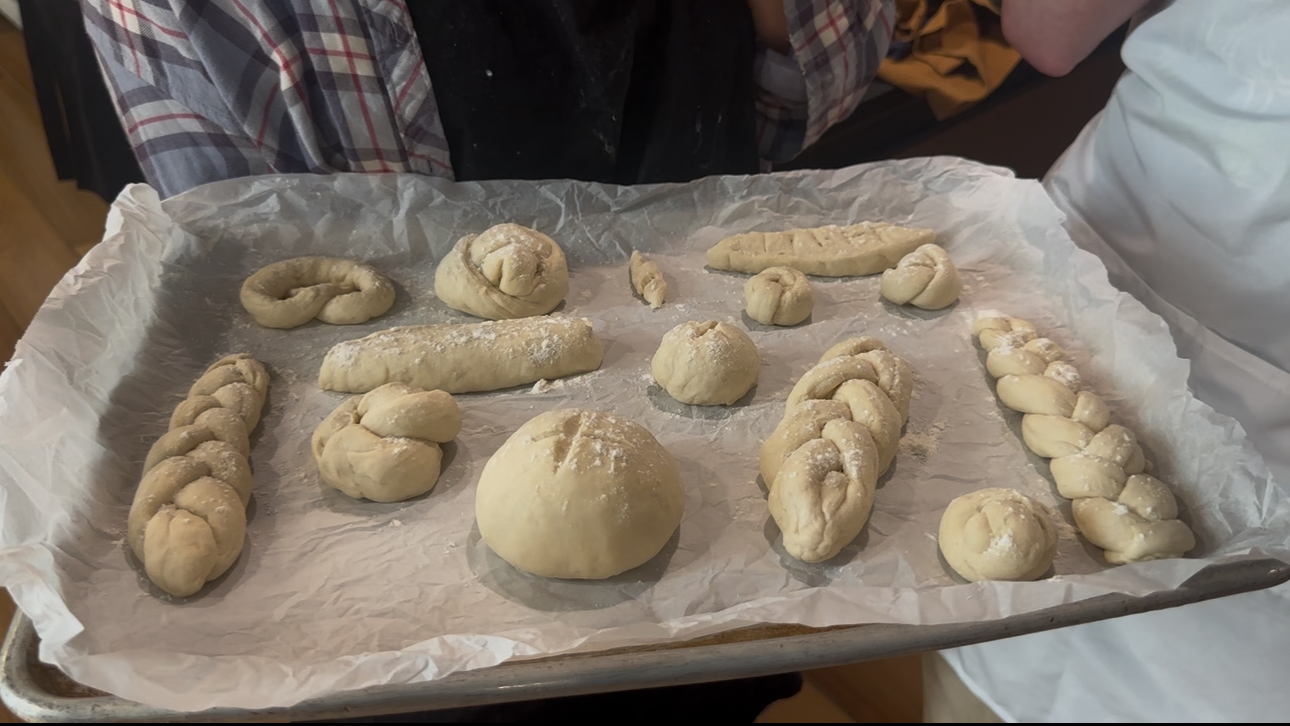USF students trade textbooks for taste tests in these classes

While traditional class etiquette discourages eating and drinking during lessons, some courses at USF embrace this concept in an educational and culturally enriching way.
USF offers students a variety of different classes to fill their schedules. Here’s a couple to help stir up your knowledge — and maybe a glass of wine.
With class registration for the fall semester open, students may be looking for a course that encourages eating and drinking, especially if they’re tasting different wines or learning to cook new dishes.
Related: MyUSF, OASIS websites to get a new look this fall
International Wine & Culture is taught by Professor Oleksandra Hanchukova in the Muma College of Business building. She looks to raise students’ interest in discovering the world through wine.
“Wine is much more than an alcoholic beverage,” Hanchukova said. “It’s rather a tool to discover the world, to discover different cultures, countries, traditions, history and people.”
Emma Sommersdorf, a sophomore hospitality management student, took the class last semester and now has a greater appreciation of wine.
“It really opened my eyes to the behind-the-scenes of alcohol, more than just it being a beverage,” Sommersdorf said. “You get to try so many types of wine and figure out which ones are your favorites.”
Within the class, students learn about the differences between new-world and old-world wines, as well as their various styles, including red, white and sparkling.
New-world wines come from regions such as the U.S., Canada, South Africa and Australia. These wines tend to be more experimental and innovative, Hanchukova said.
Old-world wines are produced in European countries, where there are strict rules on how wine is made, such as only using ingredients from the region the vineyard is located in, she said.
Students must be able to compare and contrast the two different worlds of wine. To do this, Hanchukova has tasting assignments in class.
“Wine is a product that cannot be understood without hands-on experience,” Hanchukova said.
Hanchukova teaches five steps that should be followed when experiencing wine.
Students must “see, swirl, smell, sip and spit out” the wine, Hanchukova said.
“It is a wine tasting class, not a drinking class,” Hanchukova said.
Sommersdorf is considering switching career paths because of the class.
Originally, she wanted to work in the cruise line industry. Now, she is looking into beverage management.
Sommersdorf said she is looking to further her knowledge with wine by taking a sommelier course so she can become a “wine expert.”
Students looking to take the class in the fall semester can do so online, or Thursdays at the Sarasota-Manatee campus from 5 p.m. to 7:45 p.m. with Hanchukova.
Related: OPINION: Cheers to 18 – Lower the legal drinking age
While students in International Wine & Culture are learning about various wines, those in Introduction to Food Production Management are eating their assignments.
Taught by Professor Garry Colpitts, through a “hands-on, experimental” curriculum, students learn critical thinking, time management, cost control, menu development and sanitation within the kitchen.
While it isn’t a culinary class, students learn these skills by cooking a new recipe every week.
“I want students to understand what goes on in the back of the house,” Colpitts said. “Hopefully, they’ll have a better understanding of what it’s like to be in the kitchen.”

Every class, Colpitts presents the students with the dish they’ll be learning to cook. He then teaches students how to cook it.
This semester, students learned to make dishes such as homemade pasta and “tropical” Thai food.
Once the demonstration is over, students split off into groups where they attempt to create the dish themselves, with Colpitts guiding them through the process.
In the most recent class, students learned how to make French baguettes. Students made the recipe from scratch and learned a variety of shaping methods, such as braiding and rolling.
The class is taught at Argos Exchange as there is no other available space with a kitchen that Colpitts can use for his curriculum, he said.
Related: USF’s new dining, facilities partner has a checkered past
Jack Capobianco, a sophomore hospitality management major, enjoys coming to class every week to “touch up” on his skills.
Capobianco said he enjoys the sense of community the class provides.
“It doesn’t feel like a class to me,” Capobianco said. “It feels like a bunch of friend groups that come together and cook on a Friday.
While he doesn’t plan on being a chef later on, Capobianco said it will be good to have these “background skills” when pursuing a management position.
In the fall semester, the class will have two sections. They’ll be taught Wednesday at the Sarasota-Manatee campus and Friday at the Tampa campus. Both will run from 11 a.m. to 1:45 p.m.
While the class is a part of the hospitality management major, most of its students come from other majors and take it as an elective, Colpitts said.
“They come here to decompress a little bit,” Colpitts said. “I guess from their heavy responsibilities, workload and study load. I can understand that.”







